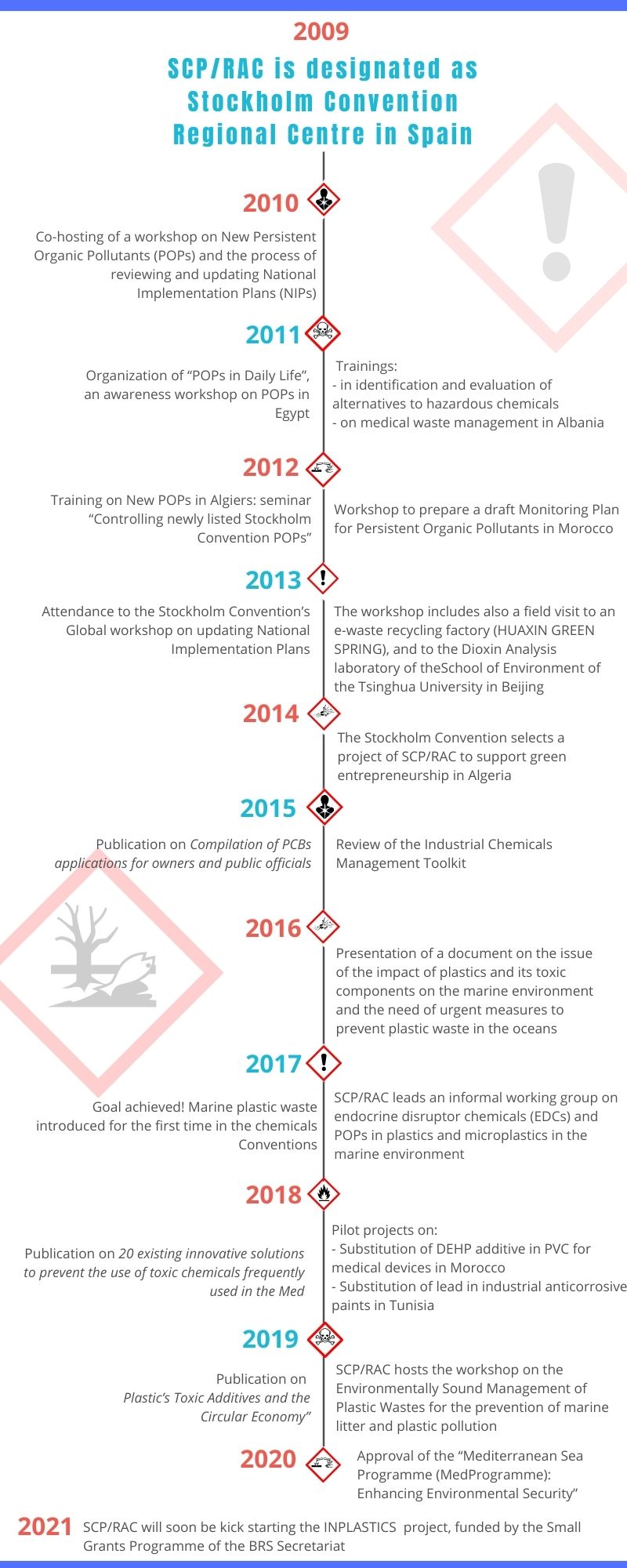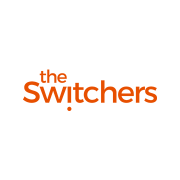

Subscriu-te al SCP News
Celebrating the 20th anniversary of the Stockholm Convention, 20 years fighting for a toxic-free planet: a peek into our past achievements!
A lot can happen in two decades, since 2001 the world has seen some of the most transformational changes in human history, from the way in which we travel, eat and work, our life style changes go hand in hand with the diversification of the products we use and the chemicals they contain, an evergrowing industry that has over 1900 registered substances to date, with 300 chemicals identified as candidates for regulatory action.
Yet, no one can deny this era of interconnectivity and digitalization has brought a great deal of awareness on what is happening around us and to our fellow humans across the world. Many could argue though, that access to a disproportionate amount of data and information has meant desensitization and political controversy but it has also engendered transformational human rights achievements and emerging issues such as the right to a clean environment, water and sanitation that are now widely recognized in international law and reflected in the Sustainable Development Goals (SDGs) and the Agenda 2030.
The first independent expert on human ights obligations relating to the enjoyment of a safe, clean, healthy and sustainable environment was appointed in 2012. In 2019, we were able to witness the Special Rapporteur’s speech on the implications for human rights of the environmentally sound management and disposal of hazardous substances and waste, a speech given during Conferences of Parties to the Basel, Rotterdam, and Stockholm conventions.
At SCP/RAC we’ve been working hard to help signatories to fulfil their obligations under the Stockholm Convention on Persistent Organic Pollutants (POPs), through capacity building and technology transfer since it was designated a Stockholm Convention Regional Centre in 2009. Persistent Organic Pollutants are identified by the LBS Protocol(1) as priority substances in the development and implementation of national programs to fight against pollution and have since become a priority in many of SCP/RAC’s activities in the developing and transition economy countries of the Mediterranean.
The centre began working on reducing the generation of hazardous chemicals and their use by means of best available techniques (BAT) and best environmental practices (BEP) and has since evolved and expanded the work on other toxic chemical substances, such as heavy metals and mercury. Gradually SCP/RAC has built a multidisciplinary team pioneering in the implementation of the prevention strategy, aiming at phasing out and substitution of new POPs with a strong focus on the issues that chemical additives are posing to the circular economy of plastics.
The reuse and recycling of plastics following circular economy principles have been promoted to address marine plastic pollution, however, as a wide range of toxic chemicals, which can pose a threat to human health and the environment, are used as additives in plastics, only a small percentage of plastic waste can be effectively recycled in a ‘close loop’. Additionally, due to the complexity of the plastic supply chain, manufacturers and waste management facilities often have limited visibility of the chemicals present in the plastic products. SCP/RAC envisions a future with increased transparency and information of the supply chain leading to improved recycling and a market of safe recycled plastics.
To commemorate the 20th Anniversary of the Stockholm convention we would like to share with you some of the most memorable moments and most cherished people who have helped us get to where we are today:

More informatin:
2011:
- The CP/RAC organized a raise awareness workshop on POPs in Egypt
- SCP/RAC is organizing in collaboration with SUBSPORT a training session on "Alternative Identification and Assessment on Hazardous Chemicals"
- The CP/RAC organized a training on medical waste management in Albania
2012:
- Training on New POPs in Algiers
- Workshop for the preparation of a national monitoring program for POPs in Rabat (Morocco)
2013:
2014:
2015:
- Document on Compilation of PCBs applications for owners and public officials
- Meeting for the review of the Industrial Chemicals Management Toolkit
2016:
2017:
- Goal achieved! Marine plastic waste introduced for the first time in the chemicals Conventions
- SCP/RAC leads a working group on endocrine disruptor chemicals (EDCs) and persistent organic pollutants (POPs) in marine litter plastics
2018:
2019:
2020:
- SCP/RAC publishes “Plastic’s Toxic Additives and the Circular Economy”. Originally released as an Information Document to Delegates for the 2019 Conference of the Parties to the Basel and Stockholm Conventions by SCP/RAC with the active involvement of other regional centres of the Basel and Stockholm Conventions, international organisations and experts that joined the Marine Litter Topic Group, the info doc is published with the support of IPEN
[1] LBS Protocol: Protocol for the Protection of the Mediterranean Sea against Pollution from Land-Based Sources. Adopted on 17 May 1980, in Athens, Greece.














